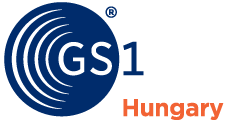During the development project launched in 2017, 24,000 types of nursing equipment were purchased at 78 sites of 66 institutions under the control of the Directorate, as well as at the University of Debrecen, the University of Szeged, and the University of Pécs.
The equipment includes multifunctional intensive care beds, modern patient beds, mattresses to prevent bedsores, rolling infusion stands, and bedside tables.
An IT system has been set up for the preservation and monitoring of the equipment, they added.
The project has also led to the training of 5,500 people to ensure the effective use of the newly acquired equipment, safe and professional patient handling, and “equal opportunities” in patient care. The project’s strategic aim was to increase the efficiency of care in healthcare, shorten nursing times, improve the quality of care and access to care, and improve working conditions for healthcare professionals, the statement says.
The National Directorate General of Hospitals has also recently announced that more than HUF 10 billion (EUR 26 million) will be spent on rehabilitation improvements this autumn.
The project will involve 54 institutions, where rehabilitation equipment will be renewed and rehabilitation centers will be set up. The project will contribute to alleviating the consequences of musculoskeletal disorders by providing advanced technology-based, robot-assisted, computerized interactive therapy devices, hydrotherapy, physiotherapy, and limb mobility equipment. Rehabilitation centers will be set up, existing rehabilitation wards will be upgraded, and procedural protocols will be developed under the guidance of the National Directorate General for Hospitals, in professional cooperation with the National Institute of Musculoskeletal Rehabilitation.
The development will make a significant contribution to improving the working capacity and quality of life of rehabilitation care recipients, reducing the burden on specialist care and the number of days spent in hospital, they stressed. They added that the project will improve the quality and accessibility of care for the population and reduce the regional gap in accessibility. The project is being implemented under the Hungarian Széchenyi 2020 Program, with non-reimbursable financial support from the European Union and co-financing from the European Social Fund.






